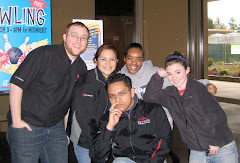A rule of thumb in scholarship essays (and life, if you will) is that it’s better to be specific than to be vague. Society is accustomed to using vague labels for people and what they do: student, businessman, housewife, factory worker, etc. These labels are convenient for the normal “small-talk” conversations that fill our daily lives.
Nothings wrong with wanting tons of money. You may want to tell the committee something different, though.
If you tell the scholarship committee that you want to be a doctor, that sounds pretty good. If you say that you want to be a doctor who performs research that leads to new drugs to reduce the effects of Alzheimer’s, or that you want to work to improve dental health among inner-city children, or open a practice in the country in order to improve elderly care in under-served rural areas — that sounds exceptional.
The more specific you are, the more your essay is going to resonate with the committee, and it’s not hard to see why. Saying you want to be a doctor is nice, but it just doesn’t mean a lot unless you say why you want to be a doctor and what you’ll be doing once you’re in that career.
And now, on to the second part: It’s a good idea to talk about your future plans in terms of how you’ll be helping others. If you plan on becoming a teacher or a nurse or another job that’s strongly associated with community service, then this will be pretty easy; however, your future plans don’t have to be 100% charity work in order to do this effectively. Well-compensated professionals of all types are responsible for helping people in countless ways.
Of course, there’s an elephant in the room here that we need to acknowledge. For a great many people, the biggest (and sometimes only) reason for working toward a certain profession is the fat salary it promises. Many doctors and lawyers care less about helping people than having a Benz in the garage and a vacation house on the beach. In that case, I say — more power to you, and I hope you get it all! (If you do, please remember little old me who helped you get there). But when it’s time to write about your career aspirations on your scholarship application, then you should lie.
Lie? Yes, lie. Remember again — this is not a book about morals and ethics. It’s a book about how to win. And in this case, honesty is not the best policy.
What’s wrong with expressing a desire to make a good honest buck? I mean, isn’t the desire to get rich at least part of the legendary American Dream? Yes indeed — I’m right there with you (hey, I don’t give the book away for free, do I?). But let’s have a practical moment here: Who’s reading these scholarship essays and deciding whether you should win?
You guessed it — mostly teachers and other education professionals. And as you know, teachers don’t exactly make boatloads of money. They gave up any dreams of big paychecks when they chose a more service-oriented, feel-good job. So a lust for money and material possessions is not going to resonate terribly well with these people.
Remember: Scholarship judges are normal people, and it’s normal to gravitate toward people whose interests are similar to your own. Therefore, we can assume that teachers will tend to empathize with students for whom wealth is secondary to service. If that doesn’t describe you, then do your best acting job, at least until you’re done with your application.
Until next time, good luck!


No comments:
Post a Comment